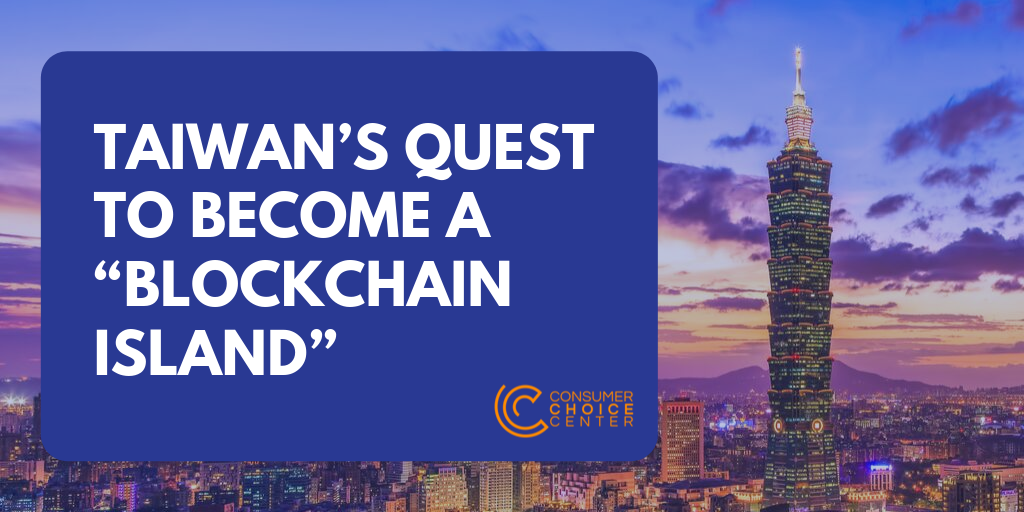
It has been over ten years since the world first heard of Bitcoin, but blockchain’s applications are still in their infancy. One legislator in Taiwan wants to change that. Nicknamed “Crypto Congressman” by Vitalik Buterin, Jason Hsu worked as a tech entrepreneur before getting involved in politics in 2016. Today, he’s on a mission to turn Taiwan into the world’s next blockchain island and crypto nation.
Hsu believes that one of the main challenges for global policy making is bridging the gap between society and technology. He’s bringing his open-minded perspective to Taiwan’s parliament in an effort to promote a more tech-driven future for the country. A future in which blockchain plays a key role.
Taiwan’s tech-forward governance
“In September 2017 when China banned ICOs, I realized that Taiwan could capitalize on this opportunity,” explained Hsu in an interview. That’s when his quest to introduce blockchain-friendly legislation in the country began.
What followed was the launch of a fintech sandbox in Taiwan. The idea was two-fold: to attract more foreign investment and to encourage more homegrown tech startups in the financial sector. Favorable regulations coupled with a big pool of local engineering talent are hoped to put Taiwan on the map of world-class fintech hubs.
But Hsu’s aspiration reaches far beyond the sandbox. He envisions applying blockchain to various aspects of governance: from the Department of Health, through Education, to Justice. The Crypto Congressman is currently involved in 25 different projects that aim to increase efficiency and improve people’s lives with blockchain. He also promised to develop an entire blockchain district in Taipei with a special community coin that would be issued to entrepreneurs.
What can blockchain do for the people?
Blockchain has gotten a lot of bad reputation in the last few years. When the Bitcoin bubble burst, skeptics were quick to proclaim blockchain a fad. Others, on the other hand, pointed out that the internet started with a speculative bubble, too. It was only after the dot-com crisis that the World Wide Web reached its maturity. Is blockchain’s real potential still largely unexplored?
According to Hsu and other visionary legislators, the answer is yes. They see the crypto speculation as a distraction from far greater tasks ahead: improving public services and increasing trust in governments.
The most important thing you need to know about blockchain is that it consists of a chain of immutable blocks, or pieces of information if you will. Every single transaction is recorded and the records stay in the system forever. You can’t delete, change or hide the data.
For governments, this could be a real deal-breaker. All the mundane transactions between the citizens and the government bodies would be revolutionized. Birth and death certificates, academic degrees, deeds, proof of identity and any other paperwork could all exist in the decentralized system. This would prevent fraud and make safe online transactions a lot easier, including e-voting or online property exchange.
The distributed ledger system can also be used to hold governments accountable and fight corruption. Blockchain could provide a permanent record of all public funds and spendings. In a utopian scenario, each citizen would be able to track where every penny of their taxes goes.
Blockchain adoption worldwide
Taiwan is not the only country to experiment with blockchain. The small nation of the Marshall Islands is set to become the world’s first state to adopt a digital legal tender. Sovereign, or SOV, will supplement the US dollar, which is currently the official currency of the Marshall Islands. Following the launch of the national cryptocurrency, the country will transition to a new model of governance, based on blockchain.
Another country incorporating blockchain for governance is Estonia. The Baltic state uses Ethereum to manage its e-residency program. Under the first-of-its-kind scheme, anyone can apply online to become an e-citizen in Estonia and legally start a business there. With cutting-edge initiatives like this one, it’s no surprise that the Estonian government was quick to embrace blockchain. However, the plans to roll out a national cryptocurrency, Estcoin, were paused indefinitely.
And finally, there is a contestant for the “blockchain island” title eyed by Taiwan. Malta is known as one of the most blockchain-friendly countries in the world, thanks to a very favorable regulatory framework passed in 2018. The island country already managed to attract many large cryptocurrency exchanges: OKEx and Binance, for example, have established their headquarters there.
Technology is the only way forward
More and more governments around the world are realizing what Jason Hsu already knows: that “blockchain is here to stay.” Implementation of blockchain-powered technologies is no longer an “if” but a “when”. In a fast-paced digital environment, legislators have a choice to move forward with the tech developments or become obsolete. The entrepreneurial spirit of “moving fast and breaking stuff” that Hsu brings to Taiwanese parliament might be just what contemporary policymakers need.
The Consumer Choice Center is the consumer advocacy group supporting lifestyle freedom, innovation, privacy, science, and consumer choice. The main policy areas we focus on are digital, mobility, lifestyle & consumer goods, and health & science.
The CCC represents consumers in over 100 countries across the globe. We closely monitor regulatory trends in Ottawa, Washington, Brussels, Geneva and other hotspots of regulation and inform and activate consumers to fight for #ConsumerChoice. Learn more at consumerchoicecenter.org.


